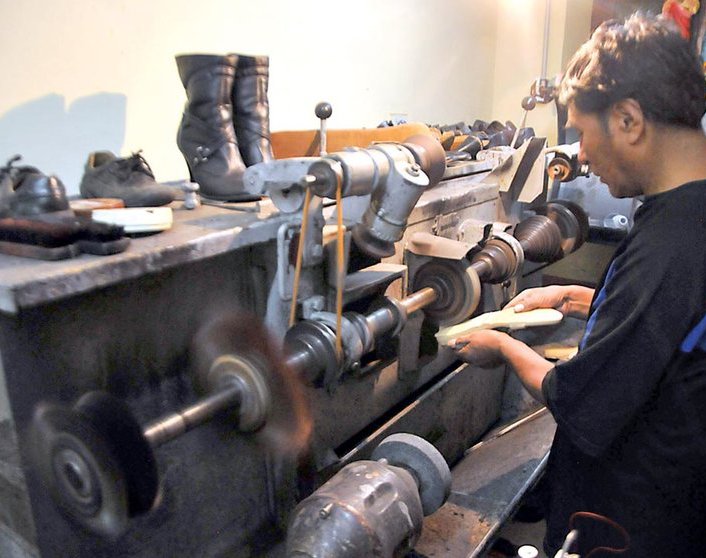Before the pandemic there were at least 300 shoe factories, now only 30 are working. The artisans of the department seek their reactivation by awarding municipal contracts., because here the risk is not only of the disappearance of a way of working, but also of a way of life. [La Llajta ya no es centro calzadista de Bolivia; cerraron 90% de talleres – Opinión Bolivia]
Cochabamba ceased to be the “footwear center of Bolivia”. 90% of shoe workshops closed since the COVID-19 outbreak.
Before the pandemic, the department was home to at least 300 factories that made a range of footwear, from sandals to boots. Now only 30 are open.
David Jiménez, one of the representatives of the Union of Footwear Producers of Cochabamba, recalled with nostalgia that they marketed their production in all the departments of Bolivia.
The artisans took shoes to the interior of the country and, sometimes, the same resellers came to the department in search of this merchandise that is considered to be of quality.
Not even the resumption of face-to-face educational work improved the sales of Cochabamba shoemakers. "We are almost three years without sales."
Behind this item there are at least 3 thousand families, considering the entire production chain involved.
To resume the "shoe vocation" of Cochabamba, this guild intends to be awarded a millionaire municipal contract.
Jiménez explained that the Mayor's Office of Cochabamba promised to provide shoes to schoolchildren in the municipality. The shoemakers want to grab this contract and are willing to compete with the rest of the participating companies.
According to Jiménez, this is the first time they have come together - some are dusting off their machines - to achieve the same goal: to be hired.
If they manage to agree with the Municipality, they will guarantee direct employment for more than 600 Cochabamba families.
This sector also plans to reach the more than 3.5 million students who are in public and private health facilities in Bolivia with its production.
Jiménez anticipated that there are already three municipalities in the department that intend to replicate the project of providing shoes to their students.
These are Cliza, Punata and Sacaba. The last mayor's office has more advanced its process of contracting a company.
Once they become known, their goal is to open stores nationwide, under their label. "There is a project."
This cluster must compete with contraband and international companies that have multiple stores in Cochabamba. However, in Jiménez's opinion, Cochabamba is characterized by quality.



